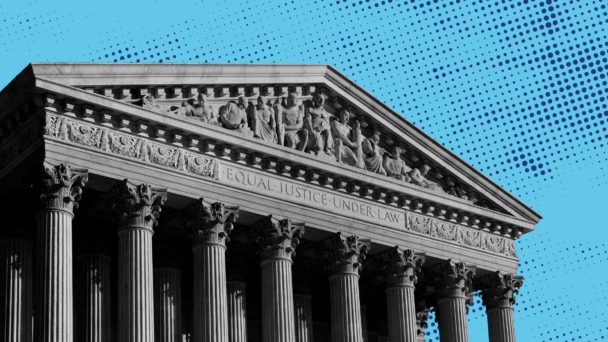On Monday, the Supreme Court opened its 2023–24 term by wrestling with a question that only lawyers could spend 90-plus minutes arguing about: what the word and means.
The case, Pulsifer v. United States, began winding its way through the legal system three years ago, when Mark Pulsifer sold about a third of a pound of meth to a customer who turned out to be a confidential informant. After his arrest, Pulsifer pleaded guilty to a felony count of methamphetamine distribution. And because of his criminal record—he’d been convicted of another drug-related felony several years earlier—he was suddenly facing a mandatory minimum sentence of 180 months in federal prison.
Fortunately for Pulsifer, mandatory minimums are not exactly in vogue on Capitol Hill these days, given the mountains of evidence that they drain public resources without making anyone safer, all while exacerbating horrific racial disparities in a criminal legal system already rife with them. In 2018 Congress passed the First Step Act, a bipartisan criminal justice reform bill that, among many other things, allows judges to deviate from mandatory minimums for people convicted of nonviolent drug offenses. This provision of federal law, known as the “safety valve,” assigns point values to different offenses and defines the group of people eligible for sentencing reductions as follows: anyone who does not have a significant criminal history (4 or more total points), a prior serious offense (a 3-point offense), and a prior (2-point) violent offense.
This might sound like a lot of numbers, but here the sums matter less than the three-letter word that ties them together. Pulsifer has more than 4 total points, and a previous 3-point conviction. However, he’s never been convicted of a 2-point violent offense. Thus, he says, the safety valve covers him: People aren’t eligible for sentencing relief only if they meet all three criteria, A, B, and C. And because Pulsifer doesn’t meet criterion C, he should be eligible for a sentencing reduction of about five years. Or, as his lawyers put itin their brief, the law’s “plain meaning is unambiguous: “ ‘and’ means ‘and.’ ”
Federal prosecutors, it will shock you to learn, feel differently: In the government’s view, anyone who fails to clear any of these hurdles is ineligible for relief. In other words, it argues that and means “or.”
Read the rest at Slate here.




